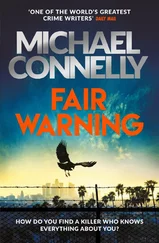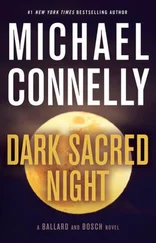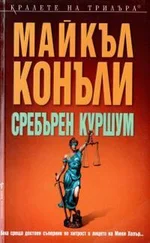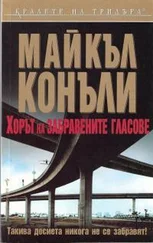“So, those times you said you had court, you were actually off snitching to gang intel?”
He glanced at me in the mirror, picking up the tone in my voice.
“I worked him,” he said. “He didn’t work me.”
“So, you’re not going to have to testify in a case?” I pressed. “I don’t want to make myself a target here, Bishop.”
“There is no case, Counselor. I worked it until my year was up and then I was out. If’n he comes around now, I can tell him to fuck off.”
His story tracked right. A bullet was a year and convicts serving a year or less usually weren’t sent to state prison. They served their short sentences in one of the county’s stockades, and the Peter J. Pitchess Honor Rancho was the largest of them all.
“You’re a Crip, right?” I asked.
“I was an associate,” Bishop said.
“Which set?”
“Southside.”
During my time with the Public Defender’s Office I had represented defendants from probably every known clique and set of the Bloods and Crips, but that was long ago and no names of former clients came to mind.
“Before your time, but Southside guys supposedly took out Tupac in Vegas,” I said.
“That’s the word,” Bishop said. “But that was ancient history.
None of those OGs were around when I was.”
“What were you on probation for?”
“Slinging.”
“So, why do you want to work for me when you could go back to your homies and sling dope? More money in that.”
“You know why, man. I got a girl and a kid now. I’m gonna get married and be done with all that.”
“You sure, Bambadjan?”
“You check me, man. You’ll see. I never was a user and I’m outta that life. I’m gonna find a place up here to rent and never go back down there.”
Bishop transitioned onto the northbound 405 to get off on Wilshire Boulevard. The federal building rose seventeen floors next to the freeway, a building that looked like a giant gray tombstone.
Soon we were in the vast parking lot that surrounded it. I told Bishop to stay in the lot and that I would text him when I was coming out.
“This probably won’t take too long,” I said.
“Paying your taxes?” he asked.
I didn’t answer. I wasn’t going to start telling him my business just yet.
In the lobby I saw Cisco waiting on the other side of the metal detector. He had brought Lorna with him. This was fine because she was a state-registered process server as well. California statutes required that all subpoenas be delivered by process servers or licensed private detectives. It was a safety rule designed to circumvent the possibility of lawyers or their clients serving subpoenas and other legal documents on the people they were engaged in disputes with.
Normally I would be nowhere near this subpoena delivery but I wanted to be there to make a statement. A statement I hoped would engender a response from the bureau.
I joined Cisco and Lorna after getting through the metal detector. We took an elevator up to the fourteenth floor, where the largest FBI field office west of Chicago was located. We somehow ended up alone on the elevator.
“You know they aren’t going to accept this, right?” Cisco said.
“I know,” I said. “I just want to make some waves, bang a few drums, and see what happens.”
“The FBI?” Lorna said. “Don’t count on them reacting at all.”
“Just have your phone ready,” I said.
Keeping with the rules, I handed Cisco the subpoena that Judge Warfield had signed. The elevator doors opened on fourteen and we saw a reception counter protected with thick glass like a bank teller’s cage in a high-crime zone. A woman sat on a stool behind a slide-through drawer. She switched on a two-way speaker attached to the glass.
“Can I help you?” she asked.
Cisco leaned down to the speaker and read the name on the subpoena.
“I’d like to see the SAC, John Trembley,” he said.
“Do you have identification?” the receptionist asked. “For all three of you?”
I pulled my wallet and dug out my driver’s license and a business card—one of the old ones printed before the California bar made me remove “Reasonable Doubt for a Reasonable Fee” from all of my advertising and marketing. Cisco and Lorna produced their IDs as well and we put all three in the drawer. The receptionist took her time studying them before responding.
“The special agent in charge doesn’t see anyone without an appointment,” the receptionist said. “I can give you an email you can use to reach out and set something up.”
Cisco held up the document with Trembley’s name written on it.
“I have a subpoena here signed by a judge requesting documents from Agent Trembley,” he said. “He needs to see it right away and I have to confirm service or we could both end up in contempt.”
“All subpoena service goes through the U.S. Attorney’s Office and they are located downtown,” the receptionist said. “You should know that.”
“I do know that,” Cisco said. “This is different. This subpoena has a clock on it.”
I leaned toward the speaker.
“Can you call Agent Trembley, please?” I asked. “He’ll want to know about this.”
The receptionist seemed annoyed by the request.
“Put it in the drawer,” she said.
The steel drawer slid out with our IDs, which we all collected. My business card was in the bottom. I took it and gave it to Cisco, who slid it under the paper clip attached to the multipage subpoena.
Cisco placed the subpoena in the drawer and it was immediately pulled in. The receptionist turned off the speaker while she pulled the subpoena out and looked at it. She then picked up a phone and made a call. The glass suppressed her side of a short conversation.
A few moments later a man in a suit stepped through a door behind the receptionist, took the subpoena, and only glanced at it as he opened a door and stepped into the waiting area.
“Agent Trembley?” I asked.
“No,” he said. “Agent Eason. We don’t accept subpoenas here.” I nodded to the one in his hand.
“You just did,” I said.
“No, this has to be taken to the U.S. Attorney’s Office,” he said.
Lorna raised her cell phone and took a photo of Eason and the subpoena.
“Hey!” the agent cried. “No photos. Delete that now!”
“You’re served,” Cisco said.
Mission accomplished, I reached back and hit the elevator button. The doors opened right away. I looked back at Eason.
“My card’s there,” I said. “Tell Trembley he can call anytime.”
We left Eason standing there, holding the subpoena. As the elevator doors closed I saw him glance through the glass at the receptionist. He looked both angry and embarrassed.
Back down in the lobby I gave Lorna and Cisco the news about Bishop.
“I just hired a driver,” I said.
We walked through the glass doors to the flag plaza.
“Who?” Lorna asked. “I thought hiring someone was my job.”
“Bambadjan Bishop,” I said.
“What?” Lorna said. “Who?”
“Is that the guy who had your back in Twin Towers?” Cisco asked.
“Exactly,” I said. “He’s out and I’m trying him out as a driver. I sort of promised him the job when I was in there. The protection money to his girlfriend now stops and I’m paying him eight bills a week to drive.”
“And you trust him?” Lorna asked.
“Not exactly,” I said. “I need to make sure he’s legit. After the eavesdropping scam and now the wallet gone missing, I’m not going to be surprised by anything the other side pulls.”
“You think he’s wired up for them?” Lorna asked.
“No indication of that but I want to be sure,” I said. “That’s where you come in, Big Man.”
Читать дальше
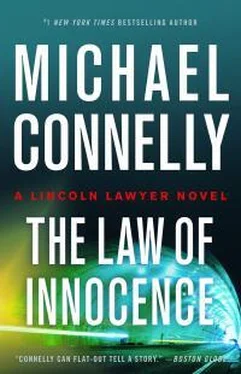
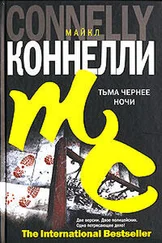


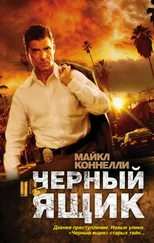
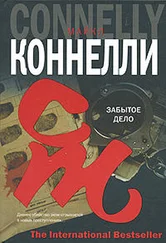

![Майкл Коннелли - Christmas Even [Short story]](/books/390532/majkl-konnelli-christmas-even-short-story-thumb.webp)
